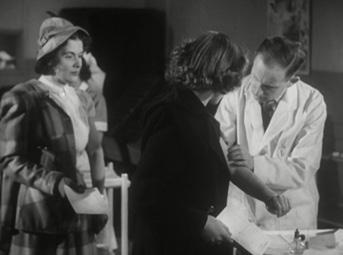
2 minute read
On Vaccination by the Bishops’ Conference
from Oremus January 2021
Join the Companions
... and help us to keep publishing Oremus free of charge
Although we earn income from the advertising which we carry, Oremus relies on donations from readers to cover its production costs. The Companions of Oremus was established to recognise those who give generously to support us. Open exclusively to individuals, Companions’ names are published in the magazine each month (see page 7). All members are invited to one or more social events during the year and Mass is offered for their intentions from time to time. If you would like to support us by joining the Companions, please write to Oremus, Cathedral Clergy House, 42 Francis Street, London SW1P 1QW or email oremuscomps@rcdow.org.uk with your contact details, including postcode. Members are asked to give a minimum of £100 annually. Please mention how you would like your name to appear in our membership list and if you are eligible to Gift Aid your donation. Postal subscriptions to Oremus may be purchased through the Cathedral Gift Shop’s website or by using the coupon printed in the magazine. Thank you for your support.
The Bishops Write on Covid-19
Bishop Richard Moth Chair, Department of Social Justice, on behalf of the Catholic Bishops’ Conference of England and Wales
The development of a vaccine against Covid-19 presents an important breakthrough in protecting others as well as oneself from the virus; a virus which has not only caused a global pandemic and led to a huge loss of life but has also placed a great burden on healthcare workers and systems. Each of us has a duty to protect others from infection with its danger of serious illness, and for some, death. A vaccine is the most effective way to achieve this unless one decides to self-isolate.
At present, debate concerns the use of the vaccines developed by Pfizer & BioNTech, Moderna, and Astra Zeneca. Some have questioned the use of the Astra Zeneca vaccine, since it has been developed from cell-lines originating from the cells of an aborted foetus in 1983. The Congregation for the Doctrine of the Faith and the Pontifical Academy of Life have expressed the view that one may in good conscience and for a grave reason receive a vaccine sourced in this way, provided that there is a sufficient moral distance between the present administration of the vaccine and the original wrongful action. In the Covid-19 pandemic, we judge that this grave reason exists and that one does not sin by receiving the vaccine. Both the Pfizer & BioNTech and Moderna vaccines have a different source, since they are mRNA-based vaccines. On 2 December 2020, the Pfizer & BioNTech vaccine was approved for use in the UK.
Each Catholic must educate his or her conscience on this matter and decide what to do, also bearing in mind that a vaccine must be safe,
A smallpox vaccination scene from the 1951 film Surprise Attack

effective, and universally available, especially to the poor of the world. Catholics may in good conscience receive any of these vaccines for the good of others and themselves. In good conscience, one may refuse a particular vaccine, but one continues to have a duty to protect others from infection.










